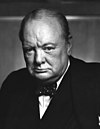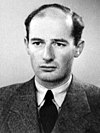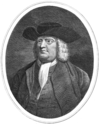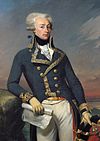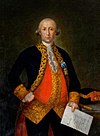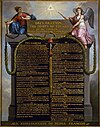
The Thirteenth Amendment to the United States Constitution abolished slavery and involuntary servitude, except as punishment for a crime. The amendment was passed by the Senate on April 8, 1864, by the House of Representatives on January 31, 1865, and ratified by the required 27 of the then 36 states on December 6, 1865, and proclaimed on December 18. It was the first of the three Reconstruction Amendments adopted following the American Civil War.

The Fourteenth Amendment to the United States Constitution was adopted on July 9, 1868, as one of the Reconstruction Amendments. Usually considered one of the most consequential amendments, it addresses citizenship rights and equal protection under the law and was proposed in response to issues related to formerly enslaved Americans following the American Civil War. The amendment was bitterly contested, particularly by the states of the defeated Confederacy, which were forced to ratify it in order to regain representation in Congress. The amendment, particularly its first section, is one of the most litigated parts of the Constitution, forming the basis for landmark Supreme Court decisions such as Brown v. Board of Education (1954) regarding racial segregation, Loving v. Virginia (1967) regarding interracial marriage, Roe v. Wade (1973) regarding abortion, Bush v. Gore (2000) regarding the 2000 presidential election, Obergefell v. Hodges (2015) regarding same-sex marriage, and Students for Fair Admissions v. Harvard (2023) regarding race-based college admissions. The amendment limits the actions of all state and local officials, and also those acting on behalf of such officials.

The Fifteenth Amendment to the United States Constitution prohibits the federal government and each state from denying or abridging a citizen's right to vote "on account of race, color, or previous condition of servitude." It was ratified on February 3, 1870, as the third and last of the Reconstruction Amendments.

The Tydings–McDuffie Act, officially the Philippine Independence Act, is an Act of Congress that established the process for the Philippines, then an American territory, to become an independent country after a ten-year transition period. Under the act, the 1935 Constitution of the Philippines was written and the Commonwealth of the Philippines was established, with the first directly elected President of the Philippines. It also established limitations on Filipino immigration to the United States.

Marie-Joseph Paul Yves Roch Gilbert du Motier de La Fayette, Marquis de La Fayette, known in the United States as Lafayette, was a French nobleman and military officer who volunteered to join the Continental Army, led by General George Washington, in the American Revolutionary War. Lafayette was ultimately permitted to command Continental Army troops in the decisive siege of Yorktown in 1781, the Revolutionary War's final major battle that secured American independence. After returning to France, Lafayette became a key figure in the French Revolution of 1789 and the July Revolution of 1830 and continues to be celebrated as a hero in both France and the United States.

The Titles of Nobility Amendment is a proposed and still-pending amendment to the United States Constitution. The 11th Congress passed it on May 1, 1810, and submitted to the state legislatures for ratification. It would strip United States citizenship from any citizen who accepted a title of nobility from an "emperor, king, prince or foreign power". On two occasions between 1812 and 1816, it was within two states of the number needed to become part of the Constitution. Congress did not set a time limit for its ratification, so the amendment is still pending before the states.
United States v. Wong Kim Ark, 169 U.S. 649 (1898), was a landmark decision of the U.S. Supreme Court which held that "a child born in the United States, of parents of Chinese descent, who, at the time of his birth, are subjects of the Emperor of China, but have a permanent domicile and residence in the United States, and are there carrying on business, and are not employed in any diplomatic or official capacity under the Emperor of China", automatically became a U.S. citizen at birth. This decision established an important precedent in its interpretation of the Citizenship Clause of the Fourteenth Amendment to the Constitution.

Voting rights, specifically enfranchisement and disenfranchisement of different groups, has been a moral and political issue throughout United States history.

Constitution Day is an American federal observance that recognizes the adoption of the United States Constitution and those who have become U.S. citizens. It is normally observed on September 17, the day in 1787 that delegates to the Constitutional Convention signed the document in Philadelphia.
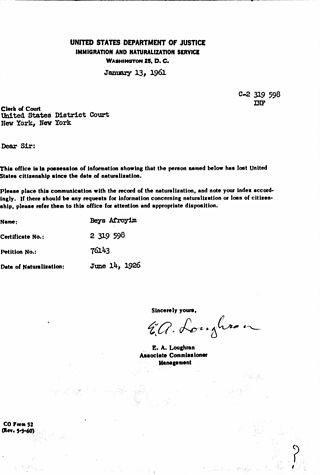
Afroyim v. Rusk, 387 U.S. 253 (1967), was a landmark decision of the Supreme Court of the United States, which ruled that citizens of the United States may not be deprived of their citizenship involuntarily. The U.S. government had attempted to revoke the citizenship of Beys Afroyim, a man born in Poland, because he had cast a vote in an Israeli election after becoming a naturalized U.S. citizen. The Supreme Court decided that Afroyim's right to retain his citizenship was guaranteed by the Citizenship Clause of the Fourteenth Amendment to the Constitution. In so doing, the Court struck down a federal law mandating loss of U.S. citizenship for voting in a foreign election—thereby overruling one of its own precedents, Perez v. Brownell (1958), in which it had upheld loss of citizenship under similar circumstances less than a decade earlier.

The Indian Citizenship Act of 1924, was an Act of the United States Congress that imposed U.S. citizenship on the indigenous peoples of the United States. While the Fourteenth Amendment to the United States Constitution defines a citizen as any persons born in the United States and subject to its laws and jurisdiction, the amendment had previously been interpreted by the courts not to apply to Native peoples.
Status as a natural-born citizen of the United States is one of the eligibility requirements established in the United States Constitution for holding the office of president or vice president. This requirement was intended to protect the nation from foreign influence.

Count René Aldebert Pineton de Chambrun was a French-American aristocrat, lawyer, businessman and author. He practised law at the Court of Appeals of Paris and the New York State Bar Association. He was the author of several books about World War II and his father-in-law, Vichy France Prime Minister Pierre Laval, to whom he served as legal counsel. He defended Coco Chanel in her lawsuit against Pierre Wertheimer over her marketing rights to Chanel No. 5. He was the chairman of Baccarat, the crystal manufacturer, from 1960 to 1992.

Ratification Day in the United States is the anniversary of the congressional proclamation of the ratification of the Treaty of Paris, on January 14, 1784, at the Maryland State House in Annapolis, Maryland, by the Confederation Congress, which marked the official end of the American Revolutionary War.
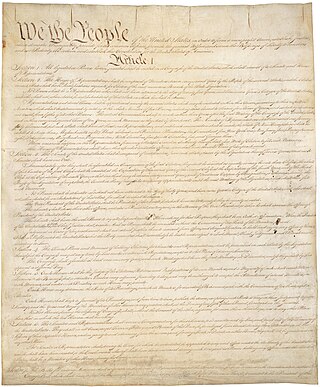
Constitution Week is an American observance to commemorate the 1787 adoption of the United States Constitution.

Citizenship of the United States is a legal status that entails Americans with specific rights, duties, protections, and benefits in the United States. It serves as a foundation of fundamental rights derived from and protected by the Constitution and laws of the United States, such as freedom of expression, due process, the rights to vote, live and work in the United States, and to receive federal assistance.

The statue of Winston Churchill on Embassy Row in Washington, D.C., is a bronze memorial in honor of British Prime Minister Winston Churchill. The plan to erect a memorial began after Churchill's 89th birthday. The English-Speaking Union (ESU) was the driving force behind the fundraising and installation of the statue. Eight sculptors submitted designs for the statue and the person chosen was William M. McVey. The architectural firms for the site were George F. Dalton and Associates and Fred Toguchi Associates.

Gilbert du Motier, Marquis de Lafayette (1757–1834), a French aristocrat and Revolutionary War hero, was widely commemorated in the U.S. and elsewhere. Below is a list of the many homages and/or tributes named in his honor:
A campaign finance reform amendment refers to any proposed amendment to the United States Constitution to authorize greater restrictions on spending related to political speech, and to overturn Supreme Court rulings which have narrowed such laws under the First Amendment. Several amendments have been filed since Citizens United v. Federal Election Commission and the Occupy movement.
